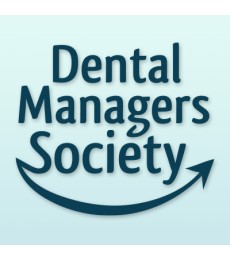The age of employee self-attestations
by Helene Horn Figman, J.D.
Employers want to do the right thing for their employees and their customers (or patients and visitors). Depending upon the business, this may involve physical distancing, skeleton crews, temperature checks, extra PPE, and changes to internal structures, among other modifications to the workplace environment. There is also a document known as a self-attestation. Many businesses are having employees complete these attestations online before coming to work or filling out a form upon arrival at the workplace.
What do these attestations state? Questions include: Have you traveled outside the state in the past 14 days? Have you had direct exposure to someone with COVID-19? Are you exhibiting COVID-19 symptoms, which may include…. While these questions are permissible to ask, beware – the staff attestation should not ask irrelevant or unusually invasive questions that are not consistent with CDC or governmental concerns.
Why would an employer want to have such verification from an employee? For one, it serves to document an employer’s attempt to address health and safety at the workplace. That, of course, is based upon a trust factor that the employee is completing the form honestly. Employers wishing to take proactive measures, but who are reticent to put more invasive measures into place, also lean towards using an attestation. It eliminates the slippery slope of obtaining medical information (i.e. temperature checks) and the related issues of how to collect and store such data. However, some businesses do require temperature checks in addition to staff attestations.
The plus side of requiring staff attestations includes a self-awareness on the part of an employee. Someone who is determined to get into work despite feeling ill will give the matter a second thought. In fact, the pressure of a workplace attendance policy is something that needs to be rethought in a post-pandemic work world. There is increased recognition that pushing through a severe cough and cold to get to the office (and spread it around) is no longer a smart or safe thing to do – or to encourage.
Do ALL businesses need to use staff attestations? Probably not. However, direct healthcare entities, such as dentists, physical therapists, and optometrists should. In that way, patients can be assured that the respective practice is doing everything to ensure that staff members are healthy, including having the same questions asked of employees that are usually asked of patients. Similarly, child care centers and preschools should also be using attestations.
Businesses where many employees are working remotely, few employees are at the workplace, customers are not entering the building, and the employees who are present are scattered throughout a large area will probably not need or want to implement an attestation requirement.
The bottom line is that during a pandemic, encouraging people to stay home when they’re sick to avoid the outbreak of COVID-19 in your workplace is obviously a sensible objective. A comprehensive yet carefully worded staff attestation might assist your business with reaching that goal.
Helene Horn Figman is an employment law specialist and attorney of the Law Offices of Helene Horn Figman, P.C. (www.figmanlaw.com), with a focus on workplace education and training. She can be reached at hfigman@figmanlaw.com.
Contact Info:
Helene Horne Figman
Employment Law & HR Resource Management
45 Bristol Drive Suite 207S
Easton, MA 02375
FigmanLaw.com
hfigman@figmanlaw.com
508-238-2700


